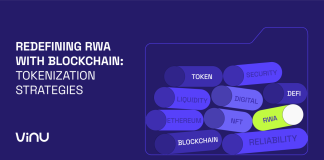One of Europe’s biggest tech conferences, WebSummit, brought together 70,000 tech professionals in Lisbon again this November.
It took place despite the controversies that led to a Silicon Valley “embargo” and a management change right before the conference, bringing together techies from all over the world. In addition to the week-long management crisis, the resignation of Portugal’s prime minister and the accompanying political turmoil overshadowed WebSummit

Despite the shiny conference facade, there were indications of an “under-the-carpet sweep” rather than a clean house. Apart from the big stage, budget-intensive shows, and the new “diverse” CEO who came to resurrect WebSummit from its ashes like a phoenix, something was missing.

As I left my fifth WebSummit this year, I thought, “This wasn’t spectacular,” only to discover that the feeling was somewhat familiar among tech event connoisseurs. As featured on Sifted, <The conference claims to have gathered more than 70k people — but, as a fellow journalist put it — “these are just not very important people.” I’ve also heard investors complain that the lineup isn’t as impressive and starry as in previous years.>
Still, there were some spectacular moments to seize, and I was onsite to observe the notable WebSummit moments and the not-so-notable ones. There it goes:

What Could Have Been Better?
- First of all, WebSummit’s celebrated Women-in-Tech tickets were announced too late, making it hard for many female tech professionals to arrange their trip to Lisbon. The delay gave the impression that WebSummit management hoped to continue without the Women-in-Tech tickets, ignoring that this diversity made WebSummit the event it is today. Next time, these tickets should be released first.

- Change is good, and it was great to see a new female CEO becoming the face of a significant tech conference such as WebSummit. However, the fact that the new, diverse CEO was brought in only after her predecessor’s position was challenged didn’t give a great impression of the motives of this change. Read more about “The Glass Cliff” or Why struggling companies promote women and how the glass cliff is designed to hold women back at work.
- During the event, the number of start-ups attending reached a substantial number. However, all these start-ups made us think, “How many is too many?” as the schedule and the massive area didn’t allow attendees to meet everyone onsite. Quantity is good, but quality is better.
Regardless, it was good to see the conference filled with aspiring female professionals and leaders discussing the impact of technology in their field.

Notable WebSummit Moments
As expected, this year’s WebSummit had an artificial intelligence theme. In addition to all the interesting talks about AI use cases, regulations, and AI’s impact on different verticals, there were even separate exhibition areas for AI start-ups. What’s more? Food court concepts developed by artificial intelligence (see below).

Another pleasant surprise at WebSummit was the country representation. Different investment agencies worldwide, from Azerbaijan to Pakistan, attended this year’s event with crowded teams and impressive exhibition areas, eager to represent the underlying culture and invite exciting start-ups.


The Brazilian exhibition hall sparked passersby’s interest, and the German Start-up Park, which included a swing and a popcorn stand, was impressive and brought many people together.
Turkey also had an eye-catching stand and was represented by Invest in Turkiye and DEIK Digital Technologies Business Council.




The biggest well-known secret about WebSummit is that the event is usually too extensive to meet anyone organically (and sometimes even planned meetings take a lot of work to actualize). WebSummit participants can best utilize the event by attending the side events, where they can learn, network, and discover beautiful Lisbon while traveling between venues. This year was no exception; the side events became excellent business networking opportunities.
The German Park (GTAI and Berlin Partner) planned an exciting evening event for participants from Germany. Although the event initially included Robert Habeck, the Federal Minister of Economics, last-minute changes to the program due to the political events unfolding in Portugal kept him from attending WebSummit.
The Turkish delegation met at the Turkish Embassy for a meet and greet.

In parallel, other country delegations, including Austrian and Portuguese delegations, organized exclusive side events for their communities.
During the 4-day tech conference, many smaller WomenInTech and investor circles took place. The WomenTech Network had a dinner for its members on Wednesday, whereas smaller circles, including the one led by German lawyer Astrid Auer-Reinsdorff, enabled tech experts to discuss collaboration in calmer settings.
VNTR and other investor circles organized investor-only events to discuss the state of the venture capital.
The attendees interested in mingling in bigger circles were able to attend the Night Summit and pub crawls the whole week.
As expected, there were more mention-worthy side-events, and I kept the best event for the last.
Europas Awards
The Europas Tech Startup Awards Gala Lunch + Afterparty, founded by Techcrunch’s Mike Butcher, co-curated by Dianne See Morrison & organized by Dataconomy’s Elena Poughia, was the highlight of the side events.
The startup award ceremony at Lisbon’s Estufa Fria, the city’s lush botanical gardens in Parque Eduardo VII, eclipsed WebSummit with its carefully curated participant list, elegant setting, and exciting startup lineup.

During the first panel, “Venturing in Uncertainty: Navigating the Choppy Seas of Venture Fundraising,” panelists discussed the stage of venture capital, concluding that the European early-stage scene will be busy next year. In contrast, the VCs expect the upcoming year to be challenging for late-stage startups. Some funds apparently started recommending their ventures to plan for financial runways until 2026! According to the investors, there is a lack of liquidity in the market, which is undergoing a correction process. This phase is not as dramatic as it sounds, as it can be used as an opportunity to build European champions.

The panel about the state of the Ukrainian startup ecosystem featuring Andrey Kolodyuk, Managing and Founding Partner, AVentures, and Viktoriya Tigipko, Founding and Managing Partner TA Ventures, focused on rebuilding Ukraine in the future. The panelists believe that Ukraine will be rebuilt by entrepreneurs in the future, and bystanders can contribute by hiring remote workers and investing in the startup scene.

The press panel enabled one of the most interesting parts of the event, creating a multi-angled discussion by world-renowned journalists. According to Ryan Heath, Leo Schwartz, and Ron Miller, AI is the most dominant subject of the year, with crypto regulations being the runner-up as crypto’s survival is closely connected to the upcoming regulations. The panelists argued that crypto was supposed to solve the trust issue but created more trust issues than before.
According to the subject matter experts, BigTech’s involvement in AI development is creating an urgency for regulatory needs; however, this won’t happen before the election in the US. The journalists believe the EU will do the heavy lifting and the US and UK will follow in the EU’s footsteps.
The experts see the most controversy around intellectual property and bias topics and expect the current significant players to lead the way in AI.

As 2024 approaches, Mike Butcher rightfully collected a round of ecosystem predictions. Schwartz seemed worried about democracy and recommended focusing on “making people AI literate” to avoid issues during the upcoming election campaigns. On the other hand, Heath used this opportunity to warn crypto companies to improve their value propositions and think about use cases for mass adoption.
For Ron Miller, 2024 suggests an ecosystem improvement, as the economy is expected to bounce back, and IT budgets will likely increase. However, he believes that the increased budgets will rarely benefit startups, as the majority will be spent on increased prices.

Mike Butcher used the time between the panels to unravel the suspense built on the startup awards. Start-ups from twenty categories, including AgTech, AI, ClimateTech, FinTech, Media, and Web3, were awarded based on originality and potential. It was no coincidence that most short-listed nominees and winners used AI, signaling what can be expected in 2024.
Here is the complete list of the 2023 winners of the Europas Awards:
- VC OF THE YEAR: IQ CAPITAL, deep tech investors in seed and series A.
- HOTTEST SCALEUP: CLEO, an AI assistant that’s fighting for the world’s financial health.
- HOTTEST WEB3: V-ART, an automated IP licensing solution for brands, creators, and AI developers.
- HOTTEST SPACETECH: SATVU, the world’s thermometer with the highest resolution insights for climate action.
- HOTTEST MOBILITY: ZEELO, a leading global Transit-Tech company for commuting.
- HOTTEST MEDIA & ENTERTAINMENT: PAPERCUP, a solution translating videos using AI by generating voices that sound like the original speaker.
- HOTTEST INSURETECH: COVERFLEX, the InsurTech making compensation work to benefit companies and employees.
- HOTTEST FINTECH: FISKL, the global AI-powered accounting and finance platform for SMEs.
- HOTTEST HEALTHTECH: HUMANITY, an app that guides you to slow down your aging and stay healthier for longer.
- HOTTEST EDTECH: ZERO GRAVITY, the digital platform transforming access to top universities and careers for low-income students.
- HOTTEST ECOMMERCE / RETAIL: SENSEI, a provider of autonomous retail solutions, using AI and sensor fusion.
- HOTTEST DEEPTECH STARTUP: SPACEDOT, the company redefining space materials qualification—in space itself.
- HOTTEST CYBERSECURITY STARTUP: HUDSON ROCK, the cybercrime intelligence company that helps protect against ransomware attacks, corporate espionage and network over-takes.
- HOTTEST CLIMATE TECH / SUSTAINABILITY / IMPACT STARTUP: UNDO CARBON, the start-up removing CO2 by spreading crushed silicate rock on agricultural land.
- HOTTEST B2B SAAS: VLGE, a no-code world-building tool to build and manage spatial gamified experiences.
- HOTTEST ARTIFICIAL INTELLIGENCE STARTUP: NEW NATIVE, an AI platform designed to aggregate the latest AI technologies, allowing both businesses and users to develop AI solutions and distribute them at scale.
- HOTTEST AGTECH / FOODTECH: ORDINARY SEAFOOD, the startup on a mission to create next generation seafood in symbiosis with our oceans.



Long story short, despite the drop in event quality and mood, Lisbon was still worth a visit, and the WebSummit side events made the long trip more memorable and productive than ever.




